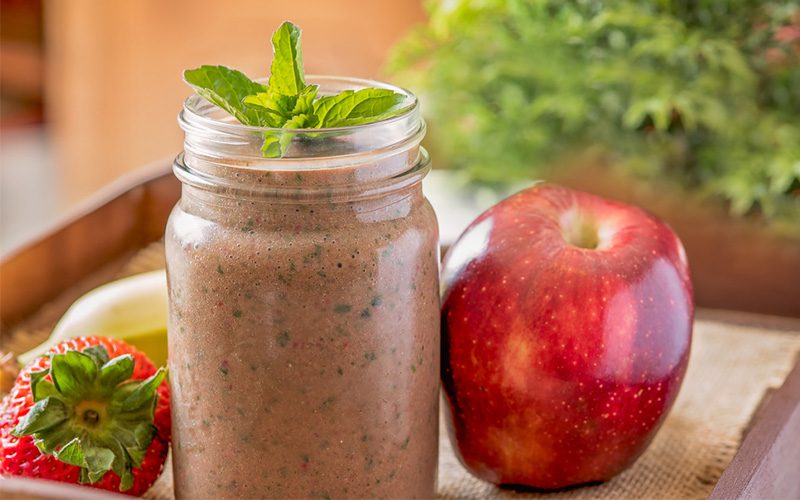
Meal Replacements or Protein Shakes: Which Is Better?
Meal replacements and protein shakes are both popular options for individuals looking to manage their weight, supplement their diet, or support their fitness goals. However, they serve different purposes and are formulated to meet distinct nutritional needs. To determine which is better, it's important to understand the differences between the two, how they can be incorporated into a diet, and their potential benefits and drawbacks.
Understanding Meal Replacement

Meal replacement products are designed to provide the nutrition of a full meal. They come in various forms, including shakes, bars, and powders, and are intended to replace one or two meals a day. The key characteristics of meal replacements are:
- Balanced Nutrition: They contain a balance of macronutrients (carbohydrates, protein, and fats) and are often enriched with vitamins and minerals to ensure you're getting a full spectrum of nutrients that would be found in a complete meal.
- Calorie Control: Meal replacements generally have a defined calorie content, which makes them useful for weight management. They can help control portion size and total daily calorie intake.
- Convenience: They offer a quick and easy alternative to preparing full meals, which can be especially beneficial for people with busy lifestyles.
Understanding Protein Shakes
Protein shakes, on the other hand, are supplements primarily designed to provide a high amount of protein with minimal other macronutrients. They are typically used for:
- Muscle Building and Repair: Protein is essential for muscle growth and repair, making protein shakes popular among athletes and those engaged in regular strength training.
- Weight Management: High-protein diets can increase satiety and reduce overall calorie intake, which can be beneficial for weight loss.
- Dietary Supplementation: Protein shakes can help individuals who struggle to meet their daily protein requirements through food alone, such as vegetarians or vegans, the elderly, or those with increased protein needs due to certain medical conditions.
Comparison of Meal Replacements and Protein Shakes
Nutritional Content
Meal replacements are formulated to mimic a complete meal, which means they have a balanced ratio of carbohydrates, proteins, and fats, along with fiber, vitamins, and minerals. Protein shakes lack this balance and focus predominantly on protein content, often providing little in the way of other nutrients unless they are fortified.
Purpose and Use
Meal replacements can be used to replace any meal of the day and are particularly useful for weight loss when used as part of a structured diet plan. Protein shakes are more commonly used as a post-workout supplement to aid in muscle recovery or as a way to add extra protein to the diet.
Satiety
Due to their balanced macronutrient profile, meal replacements may promote greater feelings of fullness compared to protein shakes. The fiber content in meal replacements can also aid in digestion and satiety.
Weight Management
Both meal replacements and protein shakes can be effective for weight management. Meal replacements make calorie counting easier, while protein shakes can help increase protein intake, which may boost metabolism and reduce appetite.
Muscle Growth
Protein shakes are typically preferred for muscle building due to their high protein content, which supports muscle protein synthesis. Meal replacements contain protein as well, but not usually in the same concentrations as protein shakes.
Cost and Accessibility
Meal replacements and protein shakes can vary in cost, with some brands and types being more expensive than others. They are both widely available in health food stores, online, and in some supermarkets.
Taste and Variety
Both meal replacements and protein shakes come in a variety of flavors and formulations. Meal replacements may offer more variety to mimic different types of meals, whereas protein shakes often come in standard flavors like chocolate, vanilla, and strawberry.
Potential Benefits and Drawbacks
Benefits of Meal Replacements
- Time-Saving: Quick and easy to prepare, they save time on meal planning and cooking.
- Nutrient-Dense: Designed to provide a balance of nutrients, which can be helpful for individuals who might otherwise skip meals or opt for less nutritious options.
- Weight Loss: Can aid in weight loss by simplifying calorie control and portion sizes.
- Versatility: Can replace any meal and be included in a balanced diet.
Drawbacks of Meal Replacements
- Cost: Can be more expensive than preparing meals from scratch.
- Taste and Texture: Some may not enjoy the taste or texture compared to whole foods.
- Processed Food: Generally considered a processed food item, which some individuals may prefer to minimize in their diet.
- Sustainability: Replacing meals on a long-term basis may not be sustainable or enjoyable for everyone.
Benefits of Protein Shakes
- Muscle Support: Provide essential amino acids needed for muscle repair and growth.
- Convenience: Easy to prepare and consume, especially for those with high protein needs or those who have difficulty consuming enough protein through food.
- Weight Management: Can help increase satiety and reduce overall calorie intake.
- Versatility: Can be consumed on their own or added to foods to increase protein content.
Drawbacks of Protein Shakes
- Imbalanced Nutrition: Lack the balance of a full meal, which means they shouldn't replace meals regularly.
- Overconsumption: Easy to consume in large amounts, potentially leading to excessive calorie intake and weight gain.
- Potential Allergens: Some protein shakes may contain allergens such as dairy or soy, which can be problematic for some people.
- Taste and Palatability: Not everyone enjoys the taste, and some may find them difficult to digest.
Incorporating Meal Replacements and Protein Shakes Into Your Diet

The decision to use meal replacements or protein shakes should be based on your individual health goals, dietary preferences, and nutritional needs. It's also important to consider the role of whole foods in your diet, as relying too heavily on either option can lead to a lack of variety and potential nutrient deficiencies.
If you're considering incorporating meal replacements smoothies or protein shakes into your diet, it's a good idea to:
- Consult with a healthcare professional or registered dietitian to ensure that your overall diet remains balanced and suitable for your health goals.
- Read labels carefully to choose products that align with your dietary needs and to avoid excessive sugars, artificial ingredients, and other additives.
- Use them as a supplement to, not a replacement for, a diet rich in whole foods. Whole foods provide a variety of nutrients and other health benefits that can't be replicated in a shake or bar.
Conclusion
Neither meal replacements nor protein shakes are inherently better than the other; they serve different purposes and can be beneficial in different contexts. The choice between them should be informed by your lifestyle, health goals, and dietary needs.
Meal replacements may be a better option for those looking to replace a meal for convenience or to control calorie intake for weight loss. Protein shakes may be more appropriate for those looking to supplement their protein intake for muscle building or to meet higher protein needs.
Incorporating either option into your diet should be done with mindfulness and moderation. A balanced diet rich in whole foods, along with a healthy lifestyle, is the best foundation for good health. If you decide to use meal replacements or protein shakes, they should complement, not replace, the variety and nutrition that whole foods provide.


